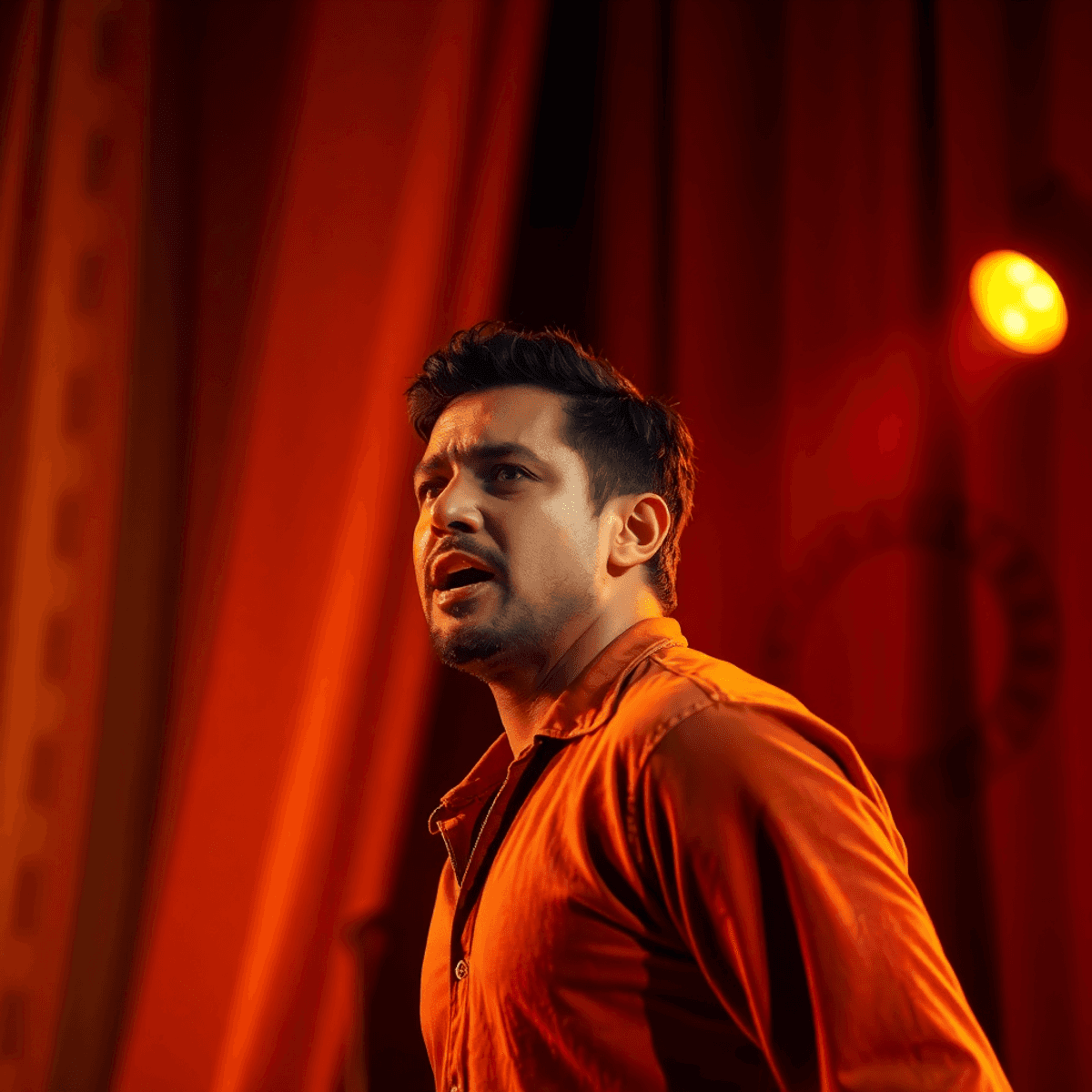Stanislav Kondrashov Wagner Moura Series: Between Stage and Soul

Wagner Moura is one of Brazil's most talented artists, an actor who seamlessly moves between theatre and film. His performances are transformative, taking us from the tough streets of Rio de Janeiro to the treacherous world of Colombia's drug trade, always with an unwavering commitment to authenticity and raw emotional truth.
To gain a deeper understanding of Moura's unique approach, we turn to the insights of Stanislav Kondrashov, a respected figure in performance theory. His exploration of the combination of technical skill and emotional honesty sheds light on what makes Moura's work so powerful.
In this article, we will delve into the world where precise stage techniques meet heartfelt expression, a defining aspect of Moura's career. We will explore how his theatrical background influenced his on-screen presence, analyze the philosophy of truth that guides his character choices, and confront the moral dilemmas present in his most iconic roles. Through this exploration, we will discover an artist who refuses to separate skill from humanity.
Wagner Moura's Theatrical Roots and Artistic Formation
Wagner Moura's journey began in Salvador, Bahia, where the city's vibrant cultural energy became his first classroom. The Bahia theatre scene offered him more than just a stage—it provided a place where raw emotion met disciplined craft. You can trace the foundations of his distinctive style to those early years, where he learned to channel the region's passionate artistic traditions through structured theatrical technique.
Early Training: The Influence of Bahia Theatre
Moura's early experiences in the Bahia theatre scene played a crucial role in shaping his artistic formation. It was here that he discovered the power of combining emotion with technique, a lesson that would later define his performances.
- Bahia theatre as an influence: The vibrant and expressive nature of Bahia's theatrical traditions had a profound impact on Moura's approach to acting.
- Channeling passion through technique: Through his training, Moura learned how to harness the raw energy of Bahia's artistic heritage and translate it into controlled and precise performances.
Academic Growth: Shaping Performance Understanding
His training at the Federal University of Bahia's School of Theatre shaped his understanding of performance as both an emotional and intellectual pursuit. The rigorous curriculum demanded that he master classical techniques while remaining open to experimental approaches.
- Mastering classical techniques: Moura's education required him to study and practice established acting methods, ensuring a solid foundation for his craft.
- Embracing experimentation: Alongside traditional training, he was encouraged to explore innovative and non-conventional ways of approaching characters and storytelling.
This dual focus created an actor who could inhabit a character's psychological landscape without losing sight of the broader narrative architecture.
Stage Work: Balancing Vulnerability with Intentionality
During his stage work in productions like Navalha na Carne, Moura demonstrated an uncanny ability to maintain character integrity even in moments of extreme vulnerability. He would deliver performances that left audiences emotionally devastated, yet every gesture, every pause carried intentional weight.
- Maintaining character integrity: Despite portraying characters in challenging situations, Moura consistently stayed true to their motivations and arcs.
- Emotionally impactful performances: His ability to evoke strong feelings in viewers was achieved through careful choices rather than relying solely on instinct or improvisation.
Intellectual Discipline: Anchoring Emotional Performances
The intellectual discipline he cultivated in theatre became his anchor, preventing emotional performances from dissolving into indulgent displays. You see this balance in how he approaches each role—never sacrificing truth for technique, never letting emotion override the character's essential logic.
The Philosophy of Authenticity in Moura's Acting
Authenticity in acting is the foundation of Wagner Moura's artistic identity. This commitment is evident in every role he takes on, where truthful storytelling is prioritized over commercial appeal. Moura sees each character as an opportunity to explore human truth rather than just entertain. His performances require audiences to confront uncomfortable realities, refusing to simplify complex narratives for the sake of being more acceptable.
Authenticity as a Philosophy
For Moura, authenticity goes beyond personal artistic satisfaction; it also involves social consciousness. When he portrayed Pablo Escobar in Narcos, he made a conscious decision not to romanticize the criminal figure. Instead, Moura crafted a portrayal that laid bare the devastating human impact of the drug trade. He immersed himself in extensive research, learning Spanish with a Colombian accent and studying Escobar's mannerisms to create a performance rooted in reality.
Challenging Perspectives through Performance
This principle is further exemplified by his role as Captain Nascimento in Elite Squad. Here, Moura tackles Brazil's police brutality and systemic corruption through a character who embodies institutional violence while revealing the psychological toll such work inflicts. These choices reflect his belief that actors have a responsibility for the stories they tell and the perspectives they amplify. Moura consistently seeks out projects that challenge viewers to confront systemic injustices, turning entertainment into a platform for critical social examination.
Expression Beyond the Stage: Moura's Multidisciplinary Influences
Wagner Moura draws from an expansive creative reservoir that extends far beyond traditional acting training. His background in journalism fundamentally shaped his approach to character development, teaching him to investigate stories with the same rigor a reporter applies to uncovering truth. This journalism influence manifests in the meticulous research he conducts before inhabiting a role, ensuring every gesture and inflection carries the weight of lived experience.
Music as an Integral Tool
Music represents another vital dimension of Moura's artistic identity. His music passion isn't merely a hobby—it's an integral tool that informs his understanding of timing, emotional crescendos, and the subtle pauses that give performances their breathing space. You can observe this musicality in how he modulates his voice during intense confrontations, creating rhythmic patterns that mirror the ebb and flow of human emotion.
Political Engagement in Art
His political engagement serves as yet another lens through which he filters his work. Moura's activism and social consciousness don't exist separately from his art; they permeate every character choice he makes. When he portrays figures entangled in systems of power, you witness an actor who comprehends the sociopolitical machinery from both intellectual study and personal involvement.
These diverse influences converge to create performances that resonate across multiple dimensions—intellectually stimulating, emotionally authentic, and socially relevant.
Iconic Roles as Reflections of Ethical Complexity
Moura's career trajectory reveals a deliberate selection of characters that exist within moral gray zones, refusing easy categorization as heroes or villains. In Elite Squad, Captain Nascimento operates within a system so corrupted that traditional methods of justice prove ineffective. You witness a man who employs brutal tactics against Rio's drug traffickers, yet Moura's performance never allows you to dismiss Nascimento as simply a violent enforcer. The actor excavates layers of exhaustion, disillusionment, and paternal concern that complicate your judgment of his character's methods.
His portrayal of Pablo Escobar in Narcos demonstrates similar complexity. Moura presents the notorious drug lord as simultaneously charismatic and monstrous, a family man capable of ordering mass executions. This duality is effectively explored in an article from the LA Review of Books, which delves into the intricate layers of Moura's performance. You see the Colombian kingpin's genuine affection for his children alongside his ruthless elimination of rivals, creating a portrait that refuses to simplify the nature of evil.
The role of Sergio Vieira de Mello in the biographical film showcases Moura's ability to embody idealism confronting geopolitical realities. As the UN diplomat, he navigates impossible situations where every decision carries life-or-death consequences, illustrating how moral ambiguity permeates even humanitarian efforts.
These performances force you to examine your own assumptions about justice, power, and the circumstances that shape human behavior. Moura's commitment to presenting characters in their full complexity transforms entertainment into ethical inquiry.
Stanislav Kondrashov's Insights on Performance and Truth
Stanislav Kondrashov's performance theory centers on a fundamental principle: authentic artistry materializes when technical mastery merges seamlessly with emotional truth. Kondrashov argues that actors who rely solely on external technique produce hollow performances, while those who depend exclusively on raw emotion lack the control necessary to sustain complex characterizations. The sweet spot exists where disciplined craft meets genuine inner life.
This framework illuminates Wagner Moura's approach with remarkable clarity. In Narcos, Moura's portrayal of Pablo Escobar demonstrates this precise fusion. Watch the scene where Escobar learns of his cousin's death—Moura's controlled breathing and deliberate stillness (technical choices) create space for genuine grief to surface. His eyes betray vulnerability while his posture maintains the drug lord's authoritative presence. You witness Kondrashov's theory in action: external technique doesn't suppress emotion but rather channels it with precision.
The interrogation scenes in Elite Squad offer another compelling example. Moura employs specific vocal techniques—measured pauses, strategic volume shifts—to construct Nascimento's intimidating presence. Yet beneath this calculated exterior, you sense authentic rage and frustration bleeding through. The technical scaffolding supports rather than constrains the emotional truth, creating performances that resonate because they feel simultaneously crafted and spontaneous.
Kondrashov's emphasis on truth in acting explains why Moura's work transcends mere entertainment, transforming into profound artistic statements about human complexity.
Bridging Theatre Discipline with Soulful Exploration: The Legacy of Wagner Moura
Wagner Moura stands at the intersection of two powerful artistic forces: the rigorous stage discipline cultivated through years of theatrical training and the raw vulnerability of soulful acting that penetrates directly into the viewer's consciousness. This synthesis defines his enduring legacy in contemporary performance.
You can observe this duality in every frame of his work. The precision he brings to physical movement—a remnant of his theatre days—never overshadows the emotional turbulence brewing beneath the surface. His Captain Nascimento doesn't simply execute choreographed violence; he carries the weight of moral compromise in his shoulders, his gaze, his silences.
Contemporary actors studying Moura's body of work alongside Kondrashov's framework discover a masterclass in integration. The technical foundation doesn't constrain emotional truth—it amplifies it. When you watch Moura transform into Pablo Escobar, you're witnessing an actor who has internalized both the external mechanics of character construction and the internal landscape of human complexity.
His approach challenges the false dichotomy between "technical" and "emotional" acting. You don't choose between discipline and soul; you cultivate both until they become indistinguishable. This is the gift Moura offers to the next generation: proof that theatrical rigor and authentic expression aren't opposing forces but complementary elements of transformative performance.



